Ichiro, a standout in both Japan's and the United States' major leagues, has become the first Japanese player elected into America's National Baseball Hall of Fame. Ichiro fell one vote short of being the hall's first unanimous selection for a position player. In a sport dominated by powerful, muscular athletes, he distinguished himself as a slender player with extraordinary technique and an innate sense for running, hitting, and fielding. His unique style and skill captivated countless fans. Ichiro set records that solidified his place in baseball history, including the most hits in a single season with 262, a career total of 3,089 hits in the majors, and 4,367 between Japan and the U.S. Known for his powerful throwing arm, his pinpoint throws were famously referred to as "laser beams." Now, his remarkable accomplishments are being celebrated once again. This special multimedia feature chronicles the journey of this legendary player, often described as a "lone wolf" and a "seeker of truth," through captivating photographs and his own words.
One vote short of unanimous vote
Excerpts from Ichiro's speech in English at the awards ceremony held in Cooperstown, New York, on July 27, 2025.
The Hall of Fame honors players, managers, umpires, and others who have made significant contributions to American baseball. In the athlete category, members of the Baseball Writers' Association of America (BWAA) with at least 10 consecutive years on a baseball beat vote based on criteria such as performance, character, contributions to their team, and other factors. To be eligible for induction into the Hall of Fame, players must be retired for at least five years and receive votes from more than 75% of the participating writers. This selection process began in 1936, with Babe Ruth and Ty Cobb among the first inductees. Each year, approximately 250,000 people visit the Baseball Hall of Fame and Museum in Cooperstown, New York, to celebrate and experience the rich history of the sport.
Hall of Fame plaques
Visitors to the Hall of Fame check out Ichiro's records
Ichiro's jersey and other paraphernalia on display
Joins the Japanese Pacific League's Orix BlueWave out of Aikodai Meiden High School in Aichi Prefecture in 1992 and leads the PL in batting average for seven consecutive years from 1994. Moves to the major leagues to join the Seattle Mariners in 2001. Joins the New York Yankees in 2012 and then moves to the Miami Marlins in 2015. Rejoins the Mariners in 2018, transitioning to the role of special assistant to the chairman of the club in May that year. Retires on March 21, 2019. Hails from Aichi Prefecture. Measures 180cm, weighs 79kg, throws right, bats left. Known for his love of Japanese curry and is said to have eaten it for both breakfast and lunch during his playing days.
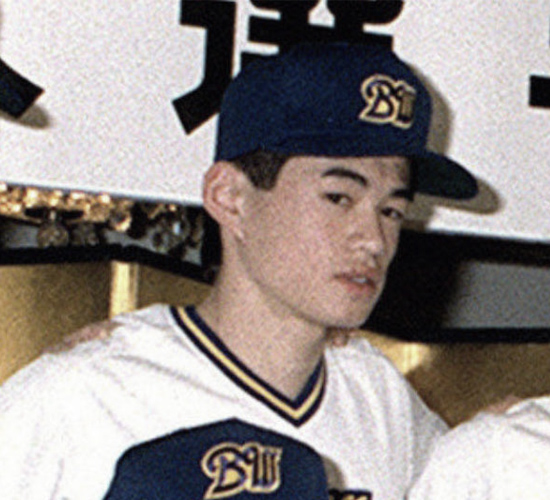

December 1991
Ichiro is pictured at a press conference after joining Orix
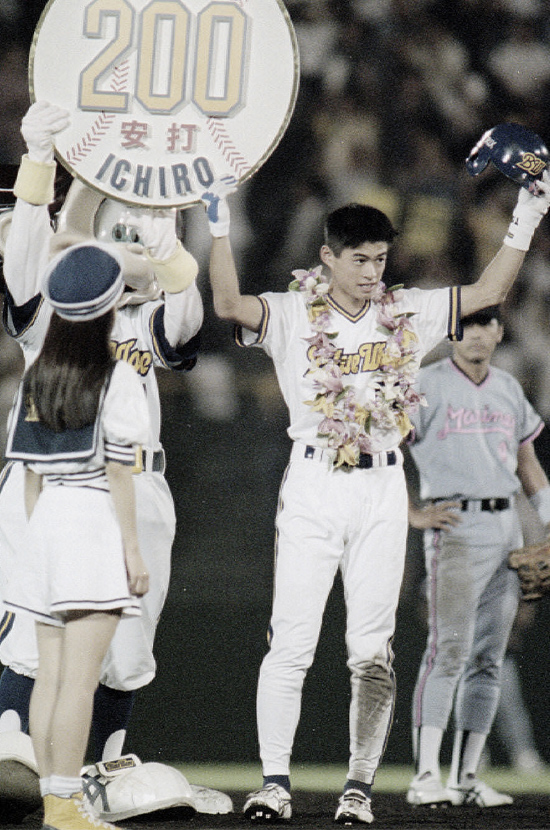

In 1994, Ichiro changed his registered name from Suzuki to "Ichiro" and became the first player in Japanese professional baseball history to achieve 200 hits in a season. From that season, he led the Pacific League in batting average for seven straight years
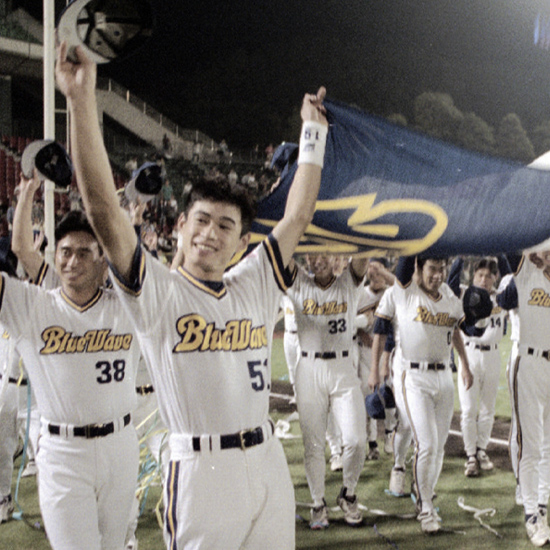
With the slogan "Hang in there, Kobe" Ichiro won the PL championship with Orix on 1995, the year of the Great Hanshin Earthquake.
Nov. 19, 2000
The Seattle Mariners announce the signing of Ichiro at the headquarters of computer game manufacturer Nintendo Co. in Kyoto.
April 2, 2001
Ichiro gets two hits on his major league debut against the Oakland Athletics
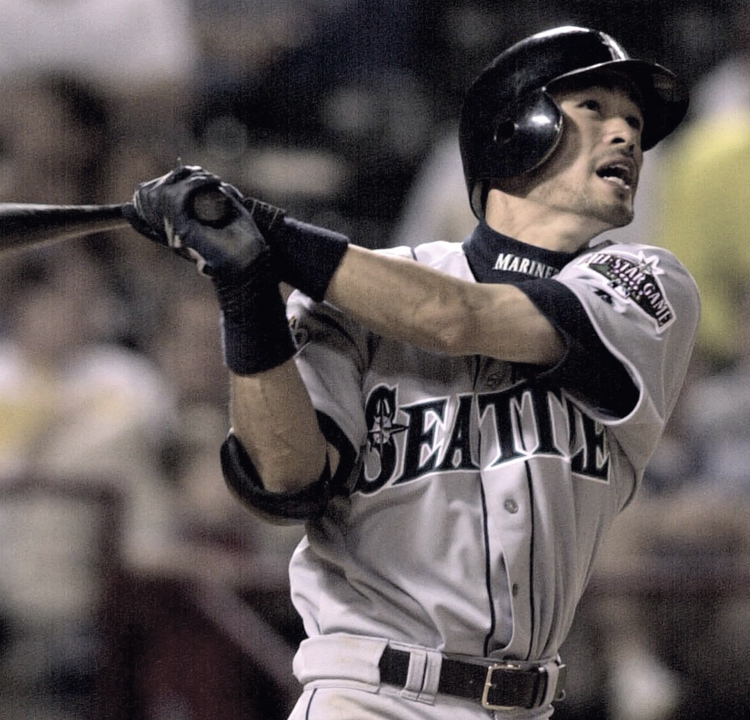

May 21, 2021
The New York Times
2001
Leads the American League in batting average and stolen bases
Named American League MVP and Rookie of the Year
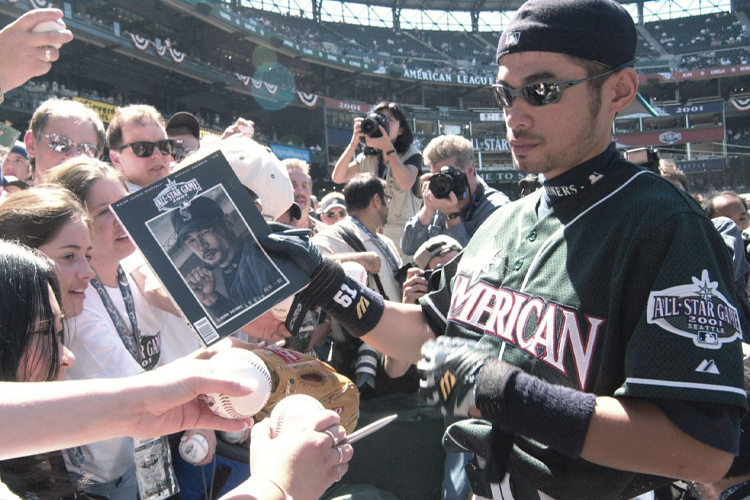
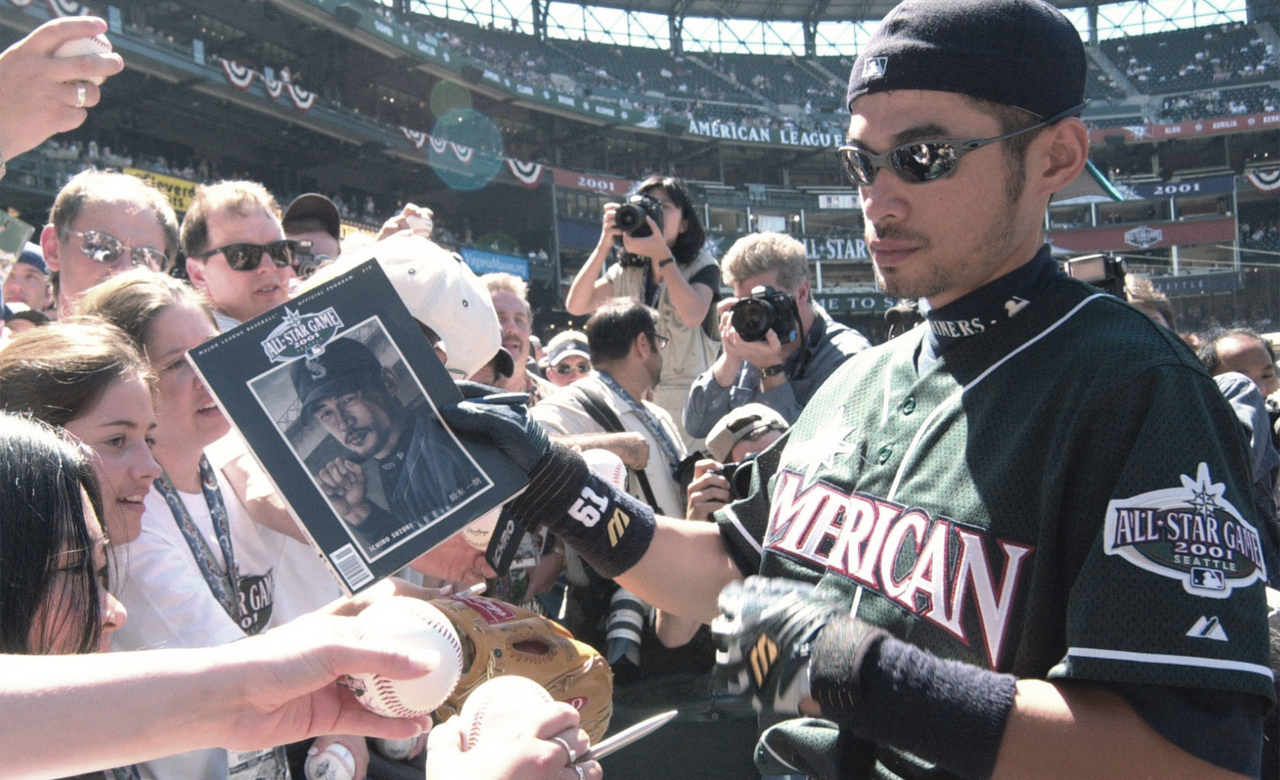
Nov. 12, 2001 - Rookie of the Year
Ichiro's "laser beam" shoulder helps him become a Gold Glove winner for 10 consecutive seasons from 2001.
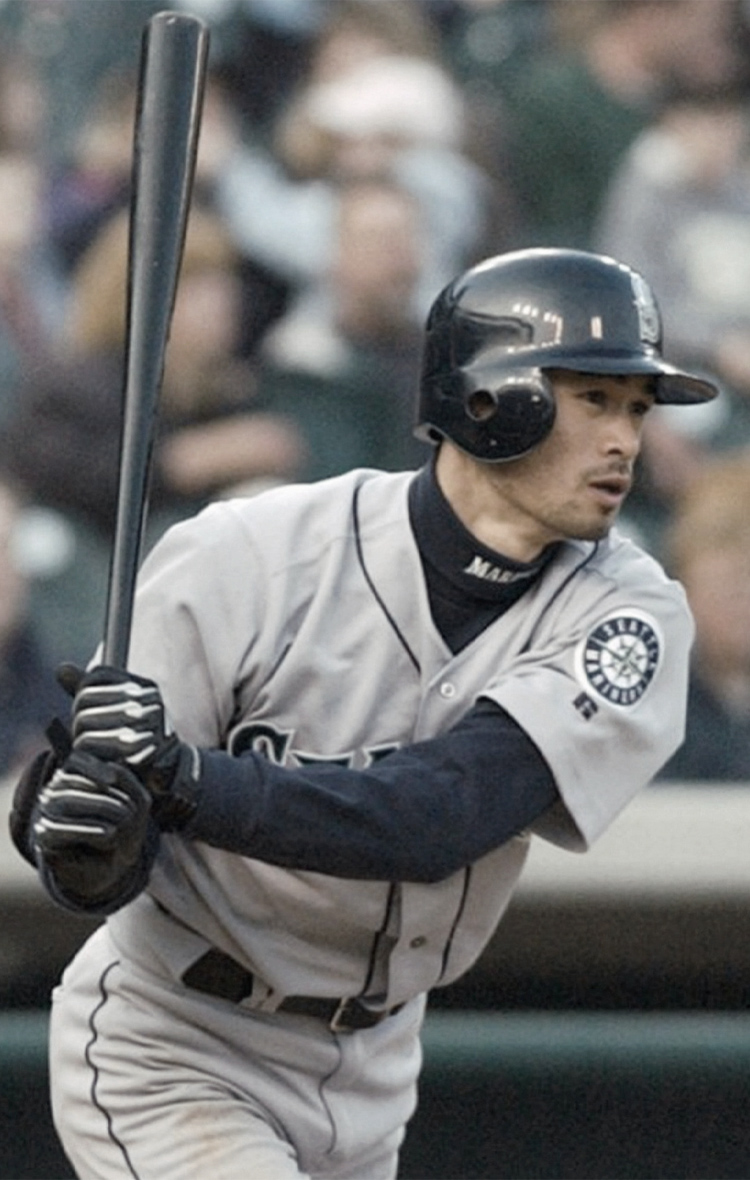
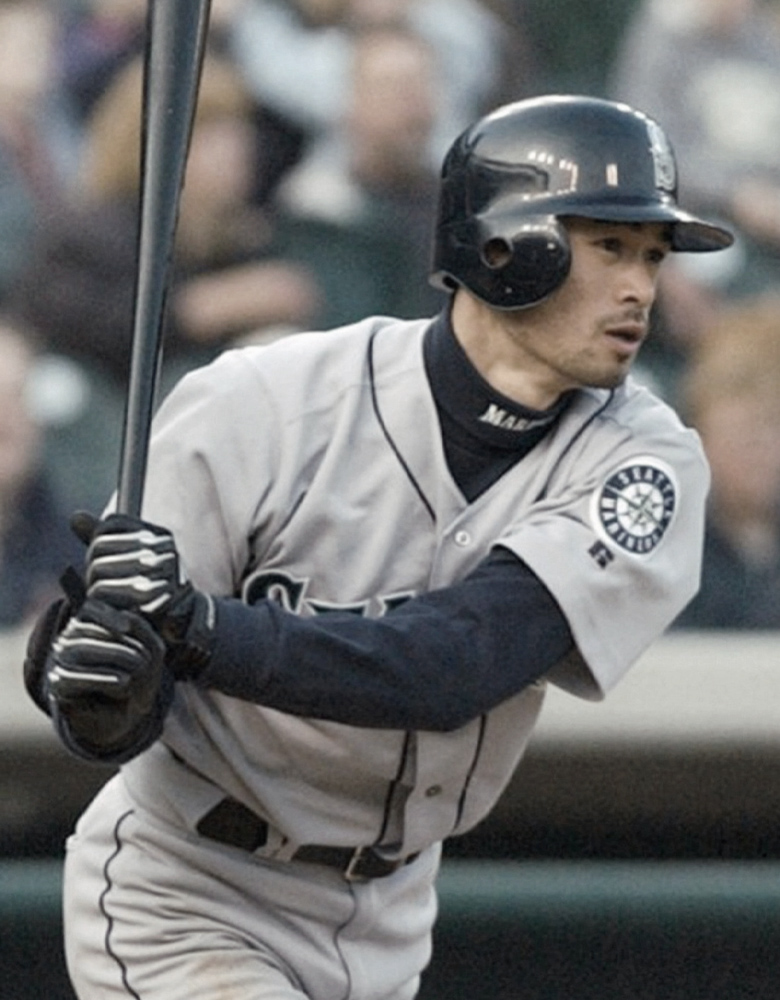
May 16, 2003 - 500th hit
2004
Ichiro sets a single-season major league record with 262 hits
June 14, 2005 - 1,000th hit
March 20, 2006 Winner of the inaugural World Baseball Classic
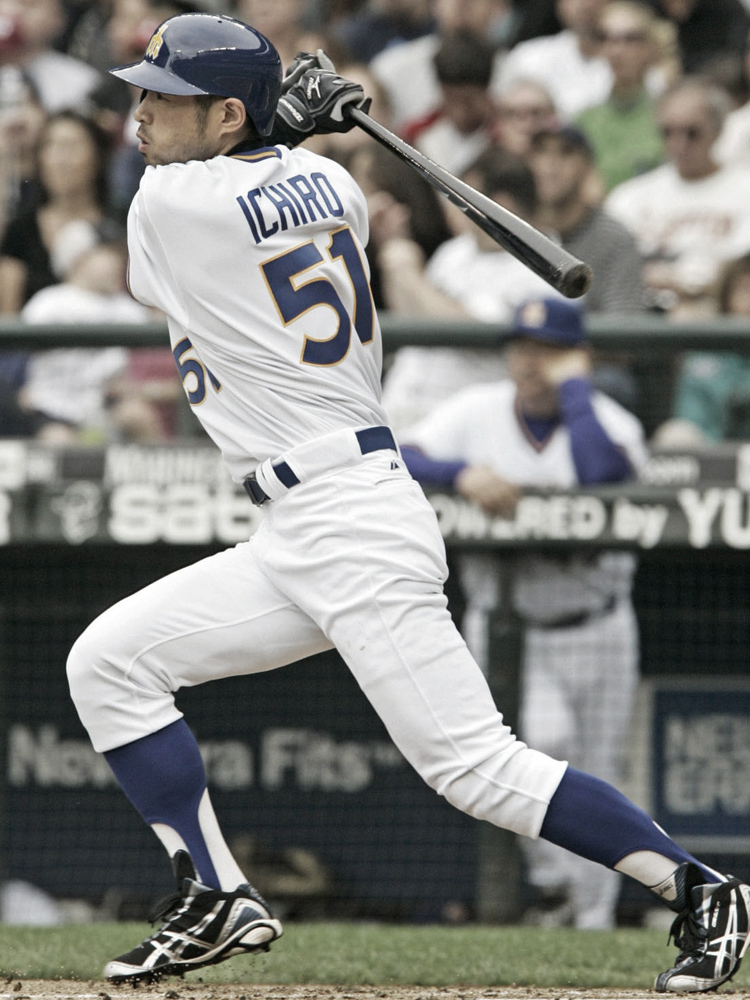

July 29, 2007
Registers 1,500th hit, third-fastest player since 1900 to reach the plateau
March 23, 2009 Wins second straight WBC title, delivering a tiebreaking two-run single in the 10th inning as Japan beat South Korea in the final.
Sept. 6, 2009 - 2,000th hit
June 19, 2012 - 2,500th hit
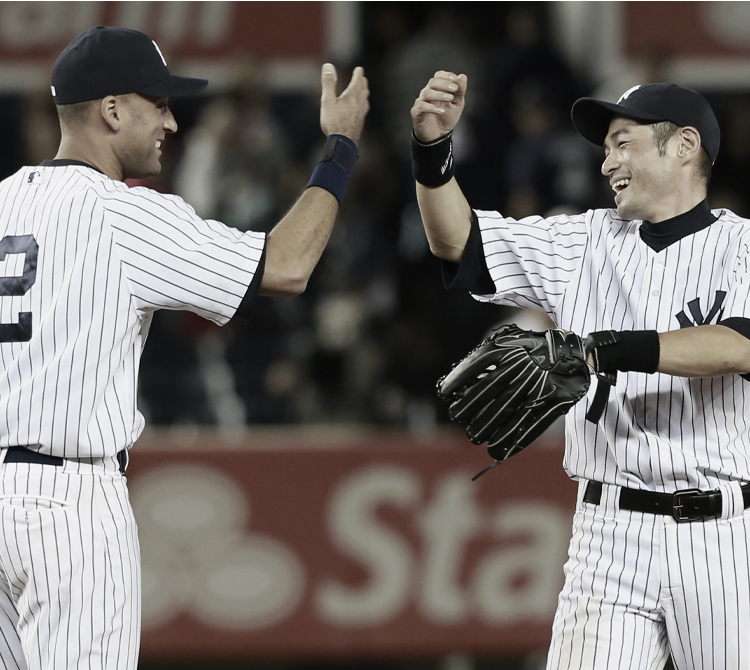

July 2012 - Moves to the New York Yankees
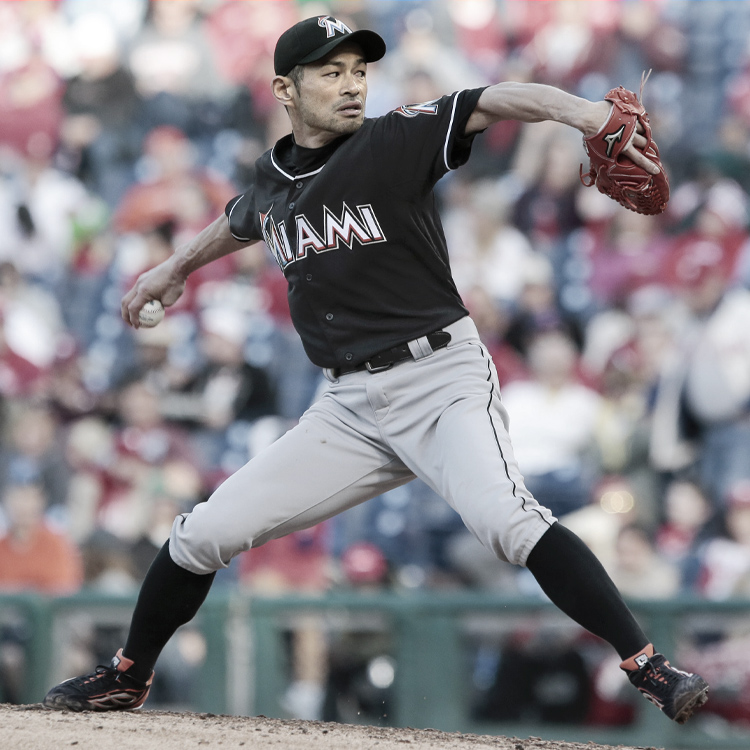

January 2015 - Moves to the Miami Marlins
Aug. 7, 2016
Gets 3,000th hit considered standard for entry into U.S. Hall of Fame
March 7, 2018
Rejoins the Seattle Mariners
2On March 21, 2019 Ichiro goes hitless in four at-bats in the Mariners' second game of the season against the Athletics at Tokyo Dome. Hugs each of his teammates and receives a standing ovation from the crowd after retiring to the bench in the bottom of the eighth inning.
Announces retirement at post-game press conference.
On receiving a standing ovation:
Logs 200-plus hits for 10 years in a row from his MLB debut. Registers 4,367 hits combined in Japan and U.S.
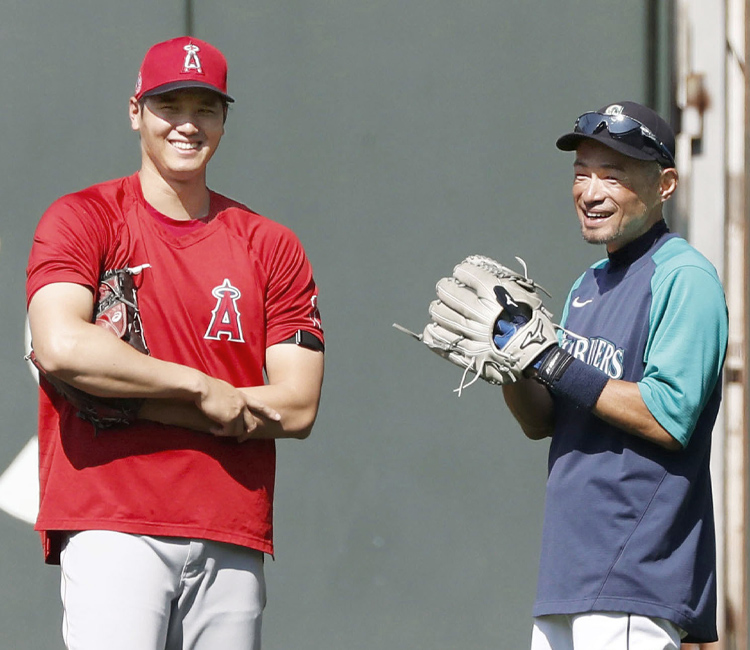

Expectations for Shohei Ohtani
Jan. 16, 2025 Joins Japanese Baseball Hall of Fame
Ichiro speaks about Kobe in his speech at the ceremony
Tomorrow (Jan. 17) marks 30 years since the Great Hanshin Earthquake. I was 21 years old at the time. I was sleeping in the Orix dormitory and it was the first time I felt that my life was in danger, or that I might die from this. The area that the dorm was located in didn't suffer major damage but even so, it was the first time I was forced to consider life.
It is very difficult to convey these things to people who have not experienced them, but I hope that I can convey the feelings I experienced as a disaster victim to children who have no such experience.
Kobe is still a special place for me, and I sometimes drop by when I'm off, but I hope that the way I continue to move forward in my own way will be an inspiration and support for others."